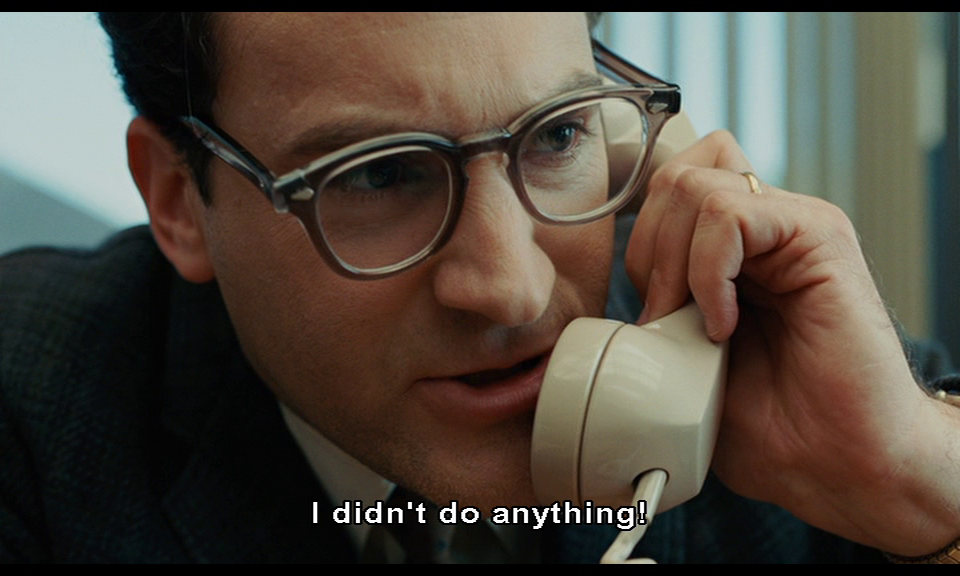Minnesota Biblical
 Spoilers. And, more broadly, the assumption you’ve seen it.
Spoilers. And, more broadly, the assumption you’ve seen it.
In ‘Kafka and his Precursors’, Borges lists texts and writers which, as the title suggests, he sees as foreshadowing Kafka. It is strange that he omits Dickens, whom Kafka admired, and whose Circumlocution Office – in Little Dorrit – is surely a direct influence. The Coen Brothers could do justice to the Circumlocution Office, as indeed they could do justice to the absurd bureaucracy which tyrannizes Joseph K in The Trial, the bizarre events and grotesque characters encountered by young Karl Roßmann in Amerika, and the rural Zeno’s Paradox experienced by K. in The Castle (Zeno’s Paradox is one of the precursors Borges adumbrates). Indeed, in A Serious Man (2009), the Coens seem to take some affectual and stylistic cues from Kafka.
Borges also remarks:
If I am not mistaken, the heterogeneous pieces I have enumerated resemble Kafka; if I am not mistaken, not all of them resemble each other. This second fact is more significant. In each of these texts we find Kafka’s idiosyncrasy to a greater or lesser degree, but if Kafka had never written a line, we would not perceive this quality; in other words, it would not exist. The poem “Fears and Scruples” by Browning foretells Kafka’s work, but our reading of Kafka perceptibly sharpens and deflects our reading of the poem. Browning did not read it as we do now. In the critics’ vocabulary, the word “precursor” is indispensable, but it should be cleansed of all connotation of polemics or rivalry. The fact is that every writer creates his own precursors. His work modifies our conception of the past, as it will modify the future.
In the same way, the existence of many texts, including but far from limited to A Serious Man, has created Kafka as one of their precursors.
Most especially, perhaps, there is the scene between the protagonist of the movie, Larry Gopnik, and the father of one of his college students. Larry has failed Clive Park because he thought all he had to do to pass Larry’s Physics paper was recite the story about the cat. (You know the cat I mean.) Larry pointed out that he needed to understand the math too. He needed to understand the meaning of the story, rather than just the story. Because the story is an illustration of a paradox Schrodinger is identifying in quantum physics. The top layer of the story – about the box and the potential feline tragedy – is not the point, at least not in a test. It is the ability to grasp the maths that is being evaluated, not the ability to remember the illustrative metaphor. Clive’s father visits Larry after Larry rejects a bribe that Clive offered him and then steadfastly refused having offered. Clive’s father denies that a bribe was offered and threatens to sue Larry for defamation. He then claims Larry accepted the bribe and threatens to expose him. Larry points out that this means he is acknowledging that a bribe was offered, which Clive’s father denies and again calls defamation.…
